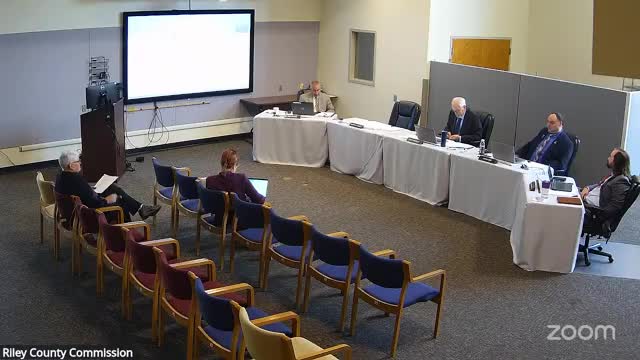Riley County OKs temporary funding to keep WIC staff paid during federal shutdown
Get AI-powered insights, summaries, and transcripts
Subscribe
Summary
Riley County commissioners approved using health-department grant and unused line-item funds to pay WIC staff through Oct. 31 while federal WIC food funding continues only for grocery reimbursements.
Riley County commissioners on Oct. 9 authorized the health department to use workforce development grant money and unspent line-item funds to cover WIC staff salaries through Oct. 31 unless federal funding is restored earlier.
The action was taken after Riley County Health Director Diane Creek and WIC Supervisor Caitlin Smith told commissioners that the U.S. Department of Agriculture’s (USDA) contingency funding routed through the Kansas Department of Health and Environment (KDHE) would cover food reimbursements to grocery stores but not local WIC staff salaries. Creek said, “WIC is a discretionary program that’s under the United States Department of Agriculture,” explaining the difference between food grants and local administrative funding.
The decision matters because KDHE estimated the state had only about 10 to 11 calendar days of regular funding beginning Oct. 1, and while contingency food dollars were made available for grocery reimbursements, local agencies faced a staff-pay shortfall. Creek told the board the salaries and benefits for WIC staff through Oct. 31 total $99,692 and that workforce development grant funds available were $33,699, leaving an identified balance of $65,933 that the health department proposed to cover from unused line items in its budget.
Creek and Caitlin Smith outlined operational impacts and alternatives. Smith noted program scale, saying the county has “over 3,000 clients enrolled in the program” though participation counts vary by report. Creek said KDHE staff would be reduced to a skeleton crew and could struggle to process all clients statewide if some local agencies paused services. Budget and finance officer Britney Phillips warned the board that if the county covers payroll while the federal shutdown continues, “there is the potential that the federal government may not reimburse us back.”
Discussion covered short-term options if the shutdown persists: furloughing staff with county-paid insurance, administrative leave, or termination; commissioners and staff stressed termination would be a last resort. Creek and county staff said they are developing contingency plans (skeleton crews, reassignment to other duties, targeted food-delivery options) and would return with updates and requests if the shutdown continues.
The formal motion to authorize the health department to use workforce development grant funding and unused line items to pay WIC staff through Oct. 31 carried on a voice vote; commissioners recorded the vote as “Aye.”
County officials said they will provide regular updates to the board while the federal funding situation is unresolved and will pursue longer-term contingency planning if the lapse continues.
